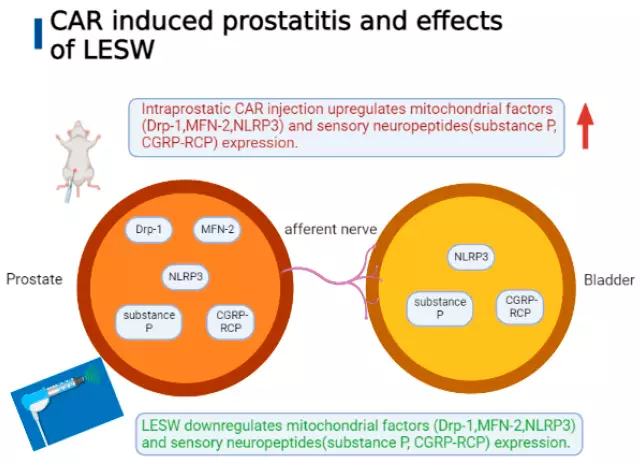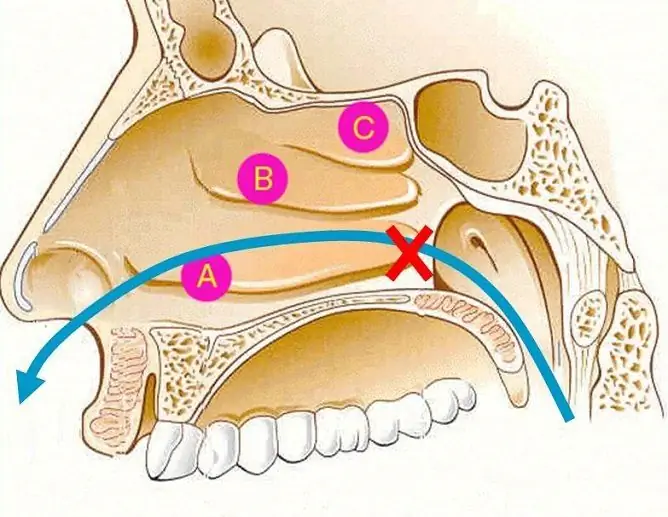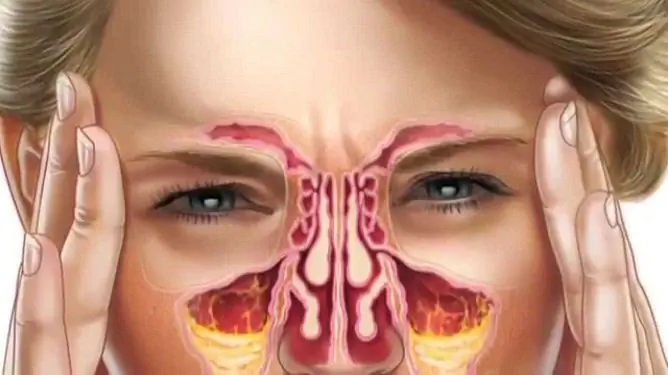- Author Rachel Wainwright wainwright@abchealthonline.com.
- Public 2023-12-15 07:39.
- Last modified 2025-11-02 20:14.
Cure prostatitis due to the triple pathogenetic action of Longidaza®
Prostatitis is an inflammatory disease of the prostate gland. It manifests itself in a dysfunction of the gland and leads to problems with urination, sexual function and hormonal disruptions. All this is accompanied by characteristic pains.
Prostatitis most often begins to develop due to an infectious agent, although an inflammatory response can be "triggered", for example, by congestive circulatory disorders or trauma. The body tries to isolate the focus of inflammation and restore the destroyed tissue of the gland, but this can be done only through the proliferation of connective tissue. The process of connective tissue hyperplasia as a result of inflammation is called fibrosis.
Fibrosis prevents not only the exit of infectious pathogens outside the area of inflammation, but also the penetration of drugs (for example, antibiotics) and immunocompetent cells into the inflamed prostate. This can lead to the development of pathological inflammation and chronicity of the process in the prostate, the occurrence of exacerbations. It is worth paying special attention to the fact that the proliferation of connective tissue begins already from the second - third day of inflammation.
These processes can be influenced by using Longidaza®. Due to the complex pathogenetic action of Longidaza®, it can be used to treat and prevent the development of chronic prostatitis, as well as in any form of the disease and at any stage. But the sooner therapy is started, the more effective it will be.
| Causes and symptoms | Risk group |
Acute infectious prostatitisThe reasons The inflammation is caused by an infection in the prostate tissue. Signs Fever, chills, fever, pain in the lower back, lower back, lower abdomen, pelvis, or groin area, difficulty urinating and painful bowel movements, frequent urination, weakness, headaches, muscle, joint, and bone pain |
Men 20-40 years old. An additional risk factor is past surgery on the pelvic organs, sexually transmitted diseases, the presence of foci of chronic infection (chronic tonsillitis, sinusitis), irregular sexual activity (long periods of abstinence or promiscuous sex with frequent changes of sexual partners). |
Chronic congestive prostatitisThe reasons Decreased immunity and physical activity, hypothermia, prolonged sexual abstinence or excessive sexual activity, alcohol abuse. Signs Discomfort, aching and cutting pains in the lower abdomen, frequent, painful, difficult urination, possible problems with erection and ejaculation, decreased libido. |
Men over 35 with sedentary work and a sedentary lifestyle. |
Effects
Chronic prostatitis in most cases is accompanied by fibrosis (proliferation of connective tissue) in the area of inflammation. This is manifested by an increase in the size of the gland, compression of the urethra, severe impaired urination and sexual activity, which can cause psychological changes in a man.

Longidaza® is an innovative drug for the prevention and treatment of chronic prostatitis as part of complex therapy
What to do?
See your doctor first. Do not delay and do not wait for it to pass by itself. Only a qualified urologist will be able to correctly determine the cause of prostatitis and, based on the test results, prescribe a comprehensive treatment. Depending on the specific clinical situation, the doctor will prescribe one of the treatment regimens.
- A course of medication that includes antibiotics (against infection) and, as a rule, non-steroidal anti-inflammatory drugs (against inflammation and pain), alpha blockers and an anti-fibrotic drug (effects on fibrosis, edema and inflammation). Take in the course (strictly as prescribed by the doctor) and usually quite long. The treatment regimen is selected by the doctor specifically for each patient.
- Hospitalization. It is prescribed at an advanced stage of the disease or in an exacerbation stage, when pain syndrome and urinary disorders are very acute. Usually, the same medication course is prescribed, but under the supervision of doctors in a hospital. Some of the drugs are administered intravenously or intramuscularly for more effective treatment. For severe pain, special pain relievers are prescribed.
- Operation. Surgical intervention is indicated when the patient has a pronounced violation of urination, up to acute urinary retention. The operation is prescribed by the attending physician.
Prophylaxis and medicines
The best way to avoid chronic prostatitis is prevention. Try not to hypothermia, move more, take vitamins and do not abuse alcohol, and follow the rules of personal hygiene.
If you feel the first symptoms of prostatitis and the doctor has confirmed the diagnosis, check with him for the list of necessary drugs for treatment and strictly follow the recommended course. One of the innovative medicines of complex action for the therapy of prostatitis is a suppository for prostatitis Longidaza®.
How Longidaza® works
Due to its unique action (anti-inflammatory, microcirculatory, anti-fibrotic, etc.), the drug effectively affects all stages of chronic inflammation in prostatitis - inflammation, edema and fibrosis. Thus, Longidaza® has a direct pathogenetic effect in prostatitis.
The main active ingredient of Longidase® is the enzyme hyaluronidase, which is stabilized on a special unique carrier. The enzyme acts on glycosaminoglycans (the basis of connective tissue), destroying them.. As a result of the influence of Longidase, the structure changes and the volume of fibrous tissue decreases, the formation of new structural components of connective tissue - collagen fibers - slows down. As a result, the formed scar tissue in the prostate decreases in volume and becomes more elastic.
The drug promotes:
- Reducing edema and restoring microcirculation in the tissues of the gland;
- weakening the inflammatory response in tissues;
- inhibition of the development of fibrosis and a decrease in the severity of already formed fibrosis.
This allows:
- Improve the penetration of drugs (including antibiotics) directly into the inflammation focus in the prostate and increase the effectiveness of antibiotic therapy to 93.1% 1;
- To increase the clinical efficiency of complex therapy by 27.3% 2;
- Reduce the number of exacerbations by almost 2.8 times 3;
- Achieve longer remission 4.
According to the instructions for medical use, Longidaza® has a favorable safety profile. All the possible few side effects listed in the instructions are very rare. The drug is well tolerated and has no serious side effects, does not adversely affect the gastrointestinal tract.
Method of administration and dosage
Longidaza® - suppositories for prostatitis for rectal use. According to the instructions, the bioavailability of the drug in suppositories is very high - about 90%. This ensures a high level of active substance supply to the inflammation focus.
Apply one suppository every other day - 10 injections 1 time in 2 days, and then another 10 injections every 2-3 days. The general course for chronic prostatitis includes 10-20 suppositories. The dosage regimen can be adjusted by the doctor depending on the severity, stage and duration of the disease.
1 Batkaev E. A., Urpin M. V. "Improving the complex therapy of chronic bacterial prostatitis" Bulletin of Postgraduate Education No. 1, 2016
2 Zaitsev A. V., Khodyreva L. A., Dudareva A. A., Pushkar D. Yu. "Modern view on the use of enzyme preparations in patients with chronic prostatitis" Clinical Dermatology and Venereology No. 3, 2016
3 Khodyreva L. A., Dudareva A. A., Karpov V. K. Longidaza in the complex therapy of chronic prostatitis. Effective pharmacotherapy. 32/2014.
4 Avdoshin V. P., Mikhailikov T. G., Andryukhin M. I., Olshanskaya E. V., Pulbere S. A. "Evaluation of the effectiveness of treatment of patients with chronic prostatitis with Longidaza 3000 IU". Effective pharmacotherapy in urology No. 4, 2010.
There are contraindications. Consultation with a specialist is required.
Found a mistake in the text? Select it and press Ctrl + Enter.






